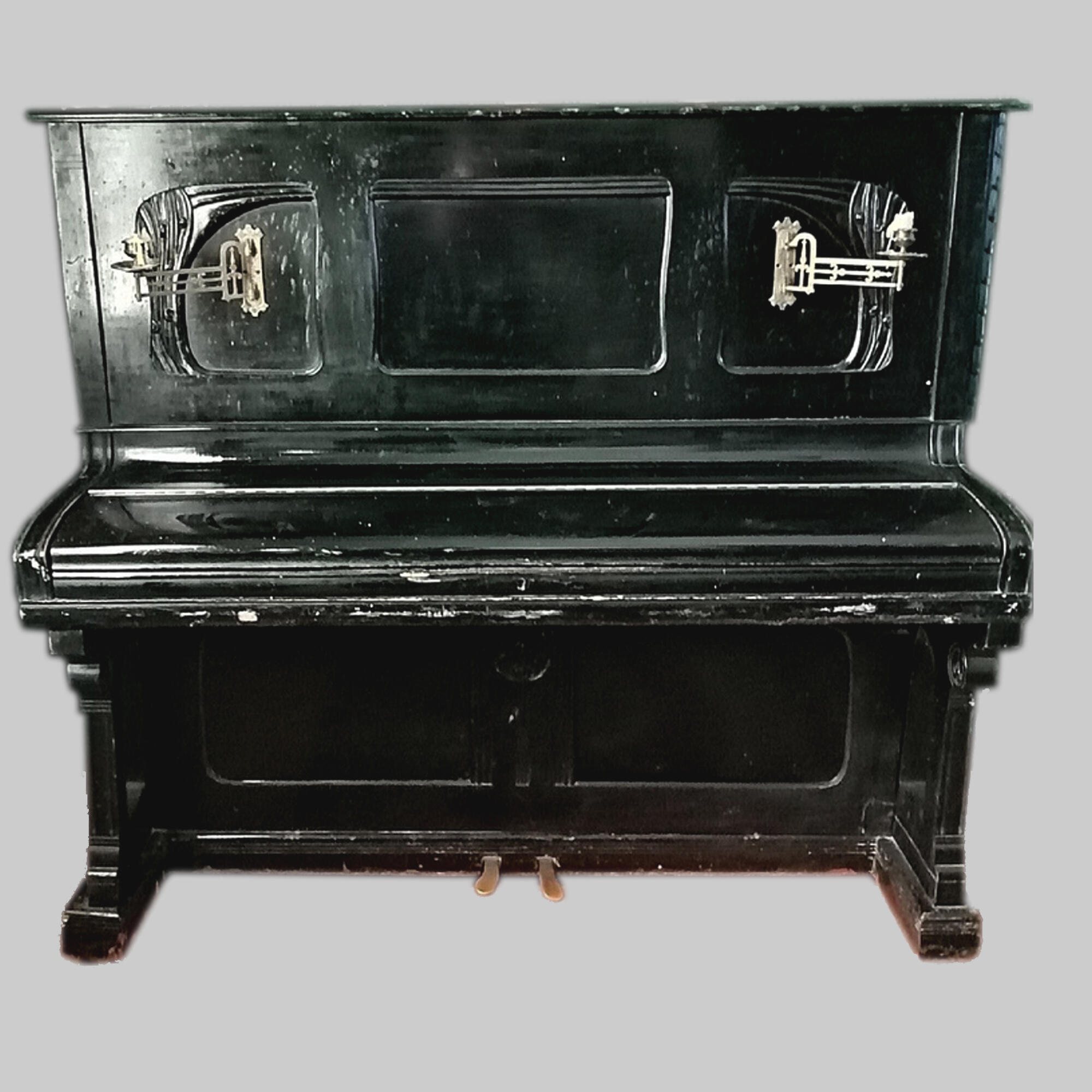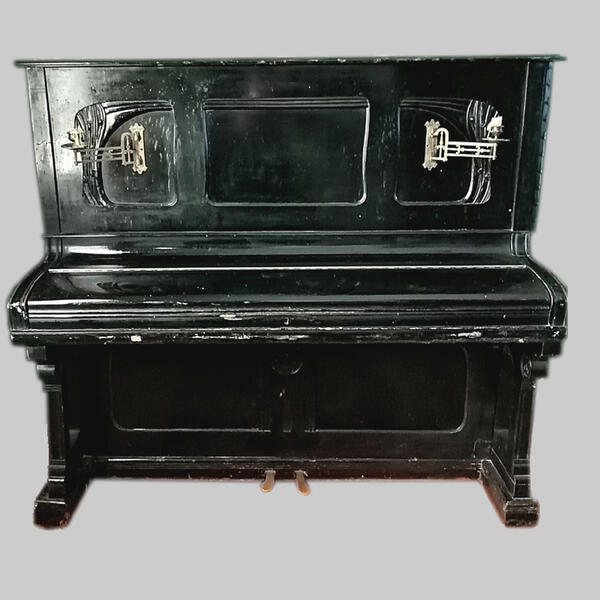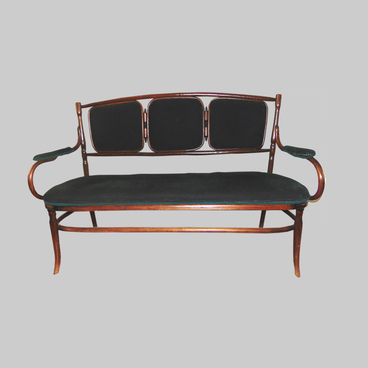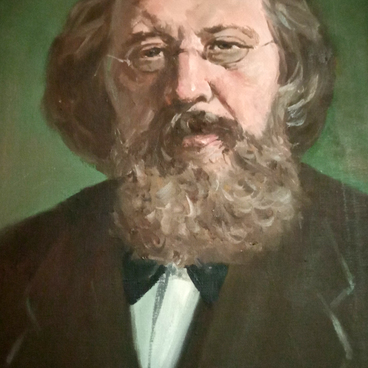This household piano was made at the factory of C.M. Schröder at the turn of the 20th century. Its body is made of solid pieces of wood, decorated with artistic carving. There are bronze candlesticks on top of it, which were very useful when playing in the evening. The keys of this piano are made of ivory. According to a theory, it was on this instrument that Olga Aksakova, the granddaughter of the writer Sergey Timofeevich Aksakov, once played with her mother at their charity evenings.
Such pianos were produced at the St. Petersburg factory of C.M. Schröder for slightly over a hundred years, from 1816 to 1917. Despite the fact it was made in the Russian Empire, the origins of its manufacture trace back to Europe: its founder was an outstanding German piano master Johann Friedrich Schröder. He started producing musical instruments under his name a few years after Russia’s victory over Napoleon. The Saxon master immediately set a very high standard of quality and almost instantly his grand and upright pianos gained great acclaim among the Russian people. This allowed him to expand his business and turn a small humble workshop on Kazanskaya Street into a massive piano factory.
C.M. Schröder employed the finest piano makers from all over the world and since 1880 it held the honorary title of Supplier of His Imperial Majesty’s Court. Furthermore, it also supplied musical instruments to the courts of Prussian, Danish, Bavarian and Hungarian kings. One of the instruments of the Schröder factory, under the number 17003, is kept in the Winter Palace: it is a grand piano, made in 1898 by the request of Emperor Nicholas II as a gift to Alexandra Feodorovna.
The C.M. Schröder grand pianos are characterized by a full, balanced, sonorous tone, a pleasant and light keyboard, as well as an exemplary quality of workmanship. The instruments of this factory were highly praised by the great musicians and composers: Anton and Nikolai Rubinsteins, Franz Liszt, Joseph Hoffmann, Eugène d’Albert and many others. By 1915, 34000 musical instruments had been released under the Schröder brand. Their production did not stop even during the First World War: the combined total in that time period amounted to 1500 instruments. Even to this day, Schröder’s factory still stands in St. Petersburg, now bearing the name ‘Arfa’ (‘Harp’).
Such pianos were produced at the St. Petersburg factory of C.M. Schröder for slightly over a hundred years, from 1816 to 1917. Despite the fact it was made in the Russian Empire, the origins of its manufacture trace back to Europe: its founder was an outstanding German piano master Johann Friedrich Schröder. He started producing musical instruments under his name a few years after Russia’s victory over Napoleon. The Saxon master immediately set a very high standard of quality and almost instantly his grand and upright pianos gained great acclaim among the Russian people. This allowed him to expand his business and turn a small humble workshop on Kazanskaya Street into a massive piano factory.
C.M. Schröder employed the finest piano makers from all over the world and since 1880 it held the honorary title of Supplier of His Imperial Majesty’s Court. Furthermore, it also supplied musical instruments to the courts of Prussian, Danish, Bavarian and Hungarian kings. One of the instruments of the Schröder factory, under the number 17003, is kept in the Winter Palace: it is a grand piano, made in 1898 by the request of Emperor Nicholas II as a gift to Alexandra Feodorovna.
The C.M. Schröder grand pianos are characterized by a full, balanced, sonorous tone, a pleasant and light keyboard, as well as an exemplary quality of workmanship. The instruments of this factory were highly praised by the great musicians and composers: Anton and Nikolai Rubinsteins, Franz Liszt, Joseph Hoffmann, Eugène d’Albert and many others. By 1915, 34000 musical instruments had been released under the Schröder brand. Their production did not stop even during the First World War: the combined total in that time period amounted to 1500 instruments. Even to this day, Schröder’s factory still stands in St. Petersburg, now bearing the name ‘Arfa’ (‘Harp’).



